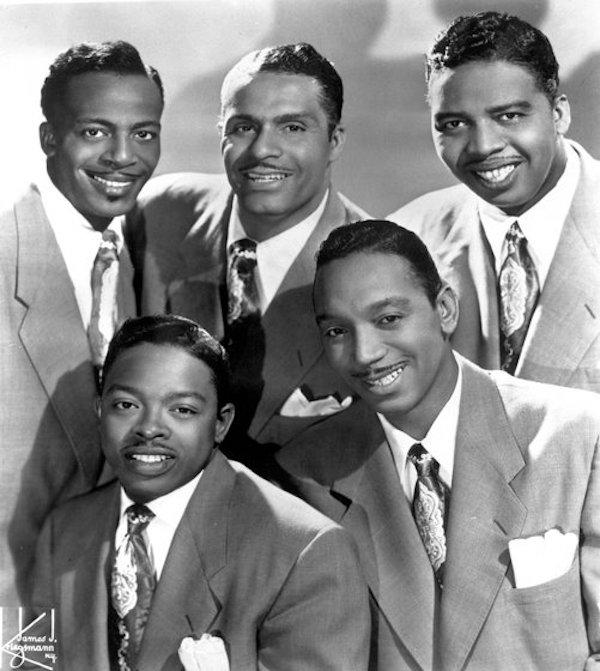The Dixie Hummingbirds

Photo courtesy of the artists
Bio
The 1920s saw the rise of a key predecessor of what we today call gospel music. Southern African American quartets injected new rhythmic drive and performing panache into their jubilee renditions of Biblical verse. The Virginia-based Golden Gate Quartet, the most popular of these groups, inspired countless others throughout the Deep South to follow their lead. In 1928 in Greenville, South Carolina, James B. Davis did just that, organizing a quartet with fellow students at Sterling High School that would be called the Dixie Hummingbirds. The "Birds" would play a major role in quartet singing throughout the South and in gospel music in general. In the words of gospel historian Tony Heilbut, "So many great quartets -- yet among black Southerners, the Dixie Hummingbirds have always been the leaders."
In the 1930s, the Dixie Hummingbirds, consisting of James B. Davis, Fred Owens, Wilson Baker, Barney Parks, and Jimmy Bryant, pursued their musical career in earnest, touring widely. In the late 1930s, they recorded 16 a cappella sides for the nationally distributed Decca label, including their breakthrough hit "Joshua Journeyed to Jericho" that brought them regional acclaim. The ban on recording brought by World War II meant a hiatus of their recording activities, but they continued to tour nevertheless. They performed regularly in New York City and were heard throughout the East Coast on their regular radio appearances. The group relocated to Philadelphia, Pennsylvania in 1942 and changed its personnel as Ira Tucker, Beachey Thompson, and William Bobo teamed up with James B. Davis. They would record more than 35 sides by the end of the decade for the Apollo, Gotham, and Regis labels. Following WWII, migration to urban areas brought a "hard," driving urban sound to gospel music. The Dixie Hummingbirds kept pace, adding guitar, bass, and drum accompaniment to their a cappella singing and, along with a few other quartets such as the Five Blind Boys, the Fairfield Four, Swan's Silvertones, and the Soul Stirrers, achieved national prominence. For years, they set the pace for quartet singing. Writes Viv Broughton in the book Black Gospel, "the Hummingbirds-and Ira Tucker especially-remained at the head of the gospel quartet singing for almost thirty years, becoming the grand masters of the style."
Today, after performing continuously for over 70 years, they are the last of an entire generation of artists who provided the foundation of Black music in the U.S. today. Popular music artists whom they have influenced include the Temptations, James Brown, Stevie Wonder, Bobby Blue Bland, Al Green, and Shirley Caesar. In 1973, they backed up Paul Simon on his hit recording "Love Me Like a Rock," and their own version of the song later won them a Grammy. They were the subjects of the critically acclaimed 1995 film directed by Ashley James, We Love You Like a Rock. While several of the past Birds have passed away, veterans Ira Tucker, Howard Carroll, Paul Owens, Carl Davis, and the newest member (joining them in 1999) William Bright continue the Dixie Hummingbirds tradition.

